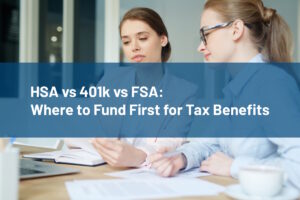INDIVIDUAL SERVICES
Wealth Transfer Planning Services
Whether it’s multigenerational wealth transfer planning, charitable giving, or business succession, Evans Sternau CPA provides professional guidance and ironclad strategies that maximize the benefits for your beneficiaries to ensure long-term financial security and peace of mind.
Why Taxes Matter
Key Reasons Wealth Transfer Planning is Important
Planning wealth transfer can be daunting and complex. Besides passing documents, you must ensure your life’s work is preserved for generations to come. Our firm goes beyond basic estate planning to customize wealth transfer solutions that pass on your legacy with minimal tax burdens, legal complications or conflict. We conduct in-depth analysis of your financial life to seal vulnerabilities, set up irrevocable trusts for family LLCs, and coordinate execution and oversight to ensure smooth implementation.
- Minimizing Estate and Gift Taxes
- Efficient Transfer of Assets
- Protecting Family Wealth
- Tailored Legacy Planning
- Maximizing Retirement and Investment Accounts
- Avoiding Family Disputes
Individual Tax Help
Who Should Consider Wealth Transfer Planning?
Wealth transfer goes beyond asset distribution. It entails orchestrating a lasting legacy that embodies your values, leverages every financial opportunity, and safeguards your beneficiaries. For forward looking individuals, a wealth transfer plan is not a one-time event, but rather an ongoing process. If any of these describe you, the time to start planning is now:
High-Net-Worth Individuals and Families
Proactive wealth succession planning is non-negotiable for taxpayers with estates exceeding federal or state exemption thresholds. High-net-worth individuals and families can count on Evans Sternau CPA experts to implement sophisticated wealth preservation strategies, such as dynasty trusts, Grantor Retained Annuity Trusts (GRATs), Spousal Lifetime Access Trusts (SLATs), and residency planning.
Business Owners and Entrepreneurs
As a business owner or an entrepreneur, your venture is both an asset and a legacy. Our team can help you create a comprehensive wealth transfer plan to ensure the business or enterprise undergoes a smooth leadership transition without crisis, while balancing family and employee interests. You can trust us to strategize an approach that shelters your patents and other IP from copyright infringement for years.
Philanthropic Donors and Nonprofits
Transform your charitable ambitions into structural advantages through a range of customized solutions that appreciate asset donations and avoid capital gains while offering deduction benefits. These include Charitable Remainder Trusts (CRUTs/CRATs), art & collectible donation strategies, private foundation optimization, among other plans.
Retirees Managing Required Minimum Distributions (RMDs)
Planning Mistakes to Skip
Common Mistakes to Avoid in Wealth Transfer Planning
Professional wealth succession planning can help you avoid preventable errors, ensuring your legacy is inherited as intended with maximum tax efficiency. We are committed to steering you away from the following mistakes:

Waiting Too Long to Start Planning
A last-minute wealth transfer plan might force your beneficiaries into suboptimal and costly decisions due to missed opportunities for annual exclusions and lifetime exemptions through gradual gifting. Starting late also makes you vulnerable to rushed trust structures that sideline your values or lack proper customization to match your goals.
Overlooking Estate Tax Law Changes
With the federal tax exemption changing whenever Congress decides, estate owners often find themselves overlooking future thresholds instead of rebalancing their portfolios based on multiple law-change scenarios. This can lead to missed tax-saving opportunities, negatively impacting your legacy to the detriment of innocent beneficiaries.
Not Using Trusts for Asset Protection
Holding assets individually instead of sheltering them in trusts exposes your life’s work to unnecessary creditor claims, whether lawsuits, bankruptcies, or divorce. With tailored wealth transfer planning, you can prevent this and ensure your beneficiaries are protected from unforeseen lump-sum distributions and probate costs.
Mismanaging Gifting Strategies
While you might mean well with your charity endeavors, gifts can sometimes trigger unnecessary tax filings, limit you from leveraging set-up in basis opportunities, or cause conflict with family members in case of unfair distributions.
Failing to Consult a CPA for Tax-Efficient Planning
It’s a big mistake to prioritize other professionals in your succession wealth planning strategy, such as attorneys and financial advisors, over CPAs. While attorneys examine legal validity and advisors help you grow, CPAs focus on your financial footprint to uncover hidden liabilities and structure ironclad trusts to offset capital gains.

How We Assist
How We Can Help

Setting Up A Trust
It is increasingly common as individuals seek to manage their assets effectively and ensure a smooth transfer of wealth to their heirs. Trusts offer numerous benefits, including:
✓ Asset protection
✓ Tax advantages
✓ The ability to dictate how and when assets are distributed.
Collaborating with wealth transfer planning experts when establishing a trust can enhance these benefits significantly. A CPA brings a deep understanding of tax implications and financial planning, ensuring that the trust is structured optimally for both current and future tax considerations. They can help navigate complex regulations, identify potential deductions, and align the trust with the individual’s overall financial strategy, ultimately providing peace of mind and securing a legacy for future generations.
Large Gifts of Assets
Gifting large quantities of money has become increasingly common, especially as individuals look to:
✓ Provide financial support to family members.
✓ Contribute to charitable causes.
✓ Reduce their taxable estate.
This practice not only allows donors to witness the impact of their generosity but also offers significant tax advantages, such as reducing potential estate taxes. Working with a wealth succession planning expert when making substantial gifts can greatly enhance the gifting process. A CPA can provide guidance on tax implications, ensure compliance with IRS regulations, and help strategize gifting amounts to maximize benefits while minimizing tax burdens. Their expertise allows individuals to structure gifts thoughtfully, taking advantage of annual exclusions and lifetime exemptions, ultimately making the most of their financial contributions.

Advanced Tax & Estate Planning
Smart Strategies for Wealth & Taxes
Donor Advised Fund Contribution
A donor-advised fund (DAF) is a philanthropic vehicle that allows individuals to make charitable contributions to a dedicated account managed by a sponsoring organization, typically a brokerage house. Donors can then recommend how the funds should be distributed to various nonprofit organizations over time. While the donation to the DAF is irrevocable, the flexibility lies in deciding when and where to allocate the funds. This approach provides tax advantages as contributions are tax-deductible when made, even if the distribution to nonprofits occurs later. DAFs offer donors simplicity, strategic giving, and potential for long-term impact on charitable causes.
Bunching Itemized Deductions
Bunching itemized deductions involves timing and grouping deductible expenses within a single tax year to surpass the standard deduction threshold. By concentrating these expenses, like charitable donations or medical costs, into specific years, taxpayers can optimize their deductions. This approach allows them to alternate between taking the standard deduction in one year and itemizing deductions in the next. Bunching leverages fluctuations in expenses, enabling individuals to achieve higher tax savings by itemizing when it’s most beneficial and utilizing the standard deduction in other years.
Qualified Charitable Distribution
A qualified charitable distribution (QCD) is a tax-efficient strategy available to individuals aged 70½ or older who hold individual retirement accounts (IRAs). Instead of taking mandatory distributions and including them as taxable income, these individuals can directly transfer funds from their IRAs to eligible charitable organizations. The transferred amount satisfies the required minimum distribution (RMD) while being excluded from the taxpayer’s taxable income. QCDs offer a double benefit: meeting the RMD obligation while supporting charities without incurring additional taxes. This enables retirees to effectively contribute to causes they care about while minimizing their tax liability.
Gift Stock to Children for Tuition
Gifting stock to children involves transferring ownership of shares or securities from a parent or guardian to their children. This can have tax implications, as any capital gains on the stock may be subject to capital gains tax when the children eventually sell the stock. However, gifting stock can be a tax-efficient way to transfer wealth, especially if the children are in a lower tax bracket, as they may pay a lower capital gains tax rate compared to the parent.
Revocable Trusts
Tax planning for revocable trusts, also known as living trusts, involves structuring the trust to efficiently manage and potentially minimize estate taxes and income taxes. While revocable trusts do not provide immediate tax benefits, they offer the advantage of avoiding probate, potentially simplifying estate administration. Effective tax planning within revocable trusts may include provisions to minimize capital gains taxes upon asset transfer or incorporating strategies to maximize the use of estate tax exemptions. It’s essential to consider the interplay of trust provisions, individual circumstances, and changing tax laws to create a plan that aligns with the goals of preserving wealth and reducing tax liabilities.
Sales to Grantor Trusts
A sale to a grantor trust is a financial transaction in which an individual (the grantor) sells assets, such as real estate or investments, to an irrevocable trust in which they are considered the grantor for tax purposes. The trust is designed to be disregarded for income tax purposes, meaning the grantor is still personally responsible for the income and taxes generated by the trust’s assets. This technique can be used as part of estate planning to transfer assets to heirs while utilizing the grantor’s lifetime gift tax exemption and retaining some control over the assets.
Gift Trusts
Tax planning for gift trusts involves creating and managing trusts to optimize the gifting of assets while minimizing gift and estate taxes. These trusts, like Crummey trusts or irrevocable life insurance trusts (ILITs), allow individuals to transfer assets to beneficiaries while retaining some level of control. By properly structuring these trusts and adhering to gifting rules, individuals can potentially remove assets from their taxable estate, utilize annual gift tax exclusions, and maximize the benefits of the lifetime estate and gift tax exemptions. Gift trusts demand careful consideration of tax implications, trust terms, and individual objectives to create an effective tax-efficient gifting strategy.
Annual Gift Exclusions
The tax planning for annual exclusion refers to the IRS provision that allows individuals to gift a certain amount of money or assets to another person each year without triggering gift tax consequences. As of 2023, the annual exclusion amount was $17,000 per recipient. By leveraging this exclusion, individuals can transfer wealth to family members, friends, or other beneficiaries without utilizing their lifetime gift tax exemption or incurring taxes. This strategy is a fundamental element of estate planning, enabling individuals to reduce their taxable estate over time while providing financial support to loved ones.
More About Evans Sternau CPA
At Evans Sternau, we pride our financial services in proactiveness, responsiveness, and support – they help us ensure that we continue to serve each and every one of our clients to the highest level possible
- Proactiveness: Tax, accounting, and advisory isn’t just about solving problems when they arise – Evans Sternau CPA implements better solutions and performs routine checks year-round.
- Responsiveness: Keeping all parties informed, always, means everyone is operating with full awareness and to the fullest extent.
- Support: Whatever your tax, advisory, and accounting needs are, Evans Sternau CPA guarantees that we make each and every one of our clients feel supported when they work with us.

Blog
Latest Insights
Client Education Hub: Access Professional Insights to Navigate Individual Wealth Protection and Estate Planning:
FAQ
- Q1: Who needs wealth transfer planning?
A: High-net-worth families, business owners, charitably inclined donors, and retirees managing RMDs benefit most from proactive planning.
- Q2: How is this different from basic estate planning?
A: It extends beyond documents to coordinate taxes, trusts, gifting, and estate preparation, ensuring your legacy transfers smoothly and efficiently.
- Q3: What strategies do you commonly implement?
A: Dynasty trusts, GRATs, SLATs, charitable vehicles, residency planning, Roth conversions, and QCDs - tailored to your goals.
- Q4: How can charitable giving reduce taxes?
A: Tools like donor-advised funds and charitable trusts can provide deductions, help avoid some capital gains, and facilitate long-term philanthropy.
- Q5: What mistakes should I avoid?
A: Starting late, ignoring law changes, skipping trusts for protection, mismanaging gifts, and planning without a CPA’s tax lens.
- Q6: Why involve a CPA in trust setup?
A: A CPA aligns trust terms with tax rules, identifies deductions, and integrates the trust into your broader financial strategy, ensuring compliance with IRS requirements.
- Q7: How do you help business owners?
A: We design succession plans that balance family and team interests, protect IP, and enable a smooth leadership transition.
- Q8: Can gifting lower my future estate taxes?
A: Yes. Structured lifetime gifts can reduce your taxable estate when coordinated with annual exclusions and lifetime exemptions.
- Q9: What’s the first step to get started?
A: Schedule a meeting. We assess your finances, surface risks, and map a plan to transfer wealth with minimal tax, conflict, and friction.
Ready to work with a Proactive CPA?
While we are a CPA firm in The Woodlands, we service clients across the United States. Click below to get a quote or give us a call with any other questions you may have.



